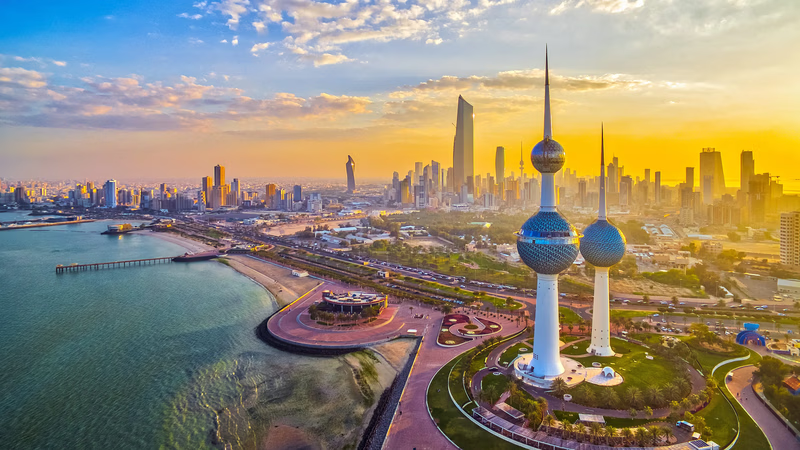
Kuwait"s vibrant trade scene: B2B marketplace and supply chain solutions. "
Kuwait is a sovereign country located in the northeastern part of the Arabian Peninsula in Western Asia. It is bordered by Iraq to the north and Saudi Arabia to the south. The capital and largest city of Kuwait is Kuwait City. It serves as the political, cultural, and economic center of the country. Kuwait's population was estimated to be around 4.3 million people. The majority of the population consists of Kuwaiti citizens, with a significant expatriate community. The official language of Kuwait is Arabic. English is widely spoken and serves as a secondary language, particularly in business and commerce.
Kuwait is not traditionally known as a major tourist destination, but it offers visitors a blend of modern and traditional attractions. Some popular tourist sites include the Kuwait Towers, Liberation Tower, Grand Mosque, Souq Al-Mubarakiya, and the Scientific Center. Exports to Kuwait have always been attracted to our country's businessmen, but in many cases, even novices enter the country without knowing and understanding it accurately. Kuwait has been one of the countries in which the Iranians have had a strong presence for a long time. Usually, economic activists in the port and southern regions of the country such as Khuzestan, Bushehr, and Bandar Abbas have economic relations with the countries bordering the Persian Gulf, including Kuwait.
Kuwait, like other countries in the Persian Gulf, is a sparsely populated and small country. But it has become a center for the presence of important economic and commercial actors in the region and even in the world. Access to international open waters and a privileged geographical location make Kuwait a very important center for business and commerce. Iran is one of Kuwait's neighbors and has a sea border with this country. The presence of important ports on both sides has led to the exchange of a significant amount of goods between them each year.
The official currency of Kuwait is the Kuwaiti Dinar (KWD). It is one of the highest-valued currencies in the world. Kuwait has a well-developed infrastructure with modern transportation systems, including an extensive road network, international airports, and a seaport. The country has invested in the development of public facilities, healthcare, education, and housing. Kuwaiti culture is influenced by Islamic traditions, Arab customs, and Bedouin heritage. The country has a rich cultural heritage reflected in its cuisine, traditional music, dance (such as the Ardha dance), and arts and crafts. Kuwait places a strong emphasis on education. The country has a well-established education system, with free education provided to Kuwaiti citizens at all levels, including primary, secondary, and tertiary education.
Accurate knowledge of Kuwait will help you to take better steps to export to this country. Therefore, it is not bad to get acquainted with the general situation of this country first. Kuwait is a Muslim country where the majority speak Arabic. However, some ethnic and religious minorities are also present in the country. The point that we have to pay attention to in terms of demographics and culture of Kuwait is that a significant part of its population is not native.
Because since ancient times, people from many other Asian countries have migrated to Kuwait. The reason for their migration was usually to gain better economic opportunities. Even a significant percentage of Iranians have immigrated to Kuwait. These people have usually been residents of cities and southern provinces of our country. Although exact and official statistics are not available in this regard, according to some statistics, it is said that about 40% of the inhabitants of this country are non-natives. Therefore, the diversity of ethnicities and nationalities in this country, along with the strong presence of the Iranian population, can be a positive point for Iranian businessmen who intend to export to Kuwait.
Islam is the predominant religion in Kuwait, and the country has a Muslim-majority population. The official religion is Islam, and Islamic principles influence various aspects of Kuwaiti society. Kuwait is a constitutional monarchy with a parliamentary system. The ruling Al-Sabah family has been in power since the early 18th century. The Emir serves as the head of state, and the Prime Minister is the head of government. Kuwait has a high-income economy primarily driven by its vast oil reserves. The country is one of the world's largest oil producers and exporters. Petroleum accounts for a significant portion of Kuwait's GDP, government revenue, and export earnings. The government has also implemented economic diversification plans to reduce dependence on oil and promote non-oil sectors such as finance, real estate, trade, and services.
-
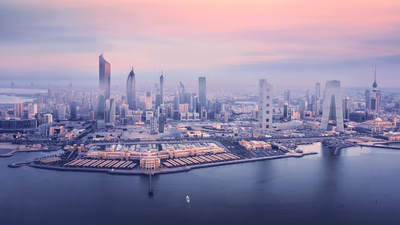
Kuwait"s trade landscape is heavily dominated by petroleum exports, which account for approximately 92% of its total exports. The primary markets for these oil exports are Asian countries, notably China and India. In addition to oil, Kuwait also exports chemicals, fertilizers, and plastics. The country benefits from its membership in the Gulf Cooperation Council (GCC), which fosters economic integration and trade cooperation among member states. Kuwait has established free trade zones, such as the Shuwaikh Free Trade Zone, to attract foreign investment and streamline customs processes. Despite a strong export economy, Kuwait relies on imports for many goods, including machinery, food products, and medical equipment. Major import partners include the United States, China, Germany, and India. Recent data indicates a notable increase in Iranian goods exported to Kuwait in 2018, highlighting shifts in trade dynamics within the region. Overall, while oil remains the cornerstone of Kuwait"s economy, the country is actively engaging in diversifying its trade relationships and enhancing its import capabilities.
-

Kuwait, located in the northeastern Arabian Peninsula, is bordered by Iraq and Saudi Arabia. With a population of approximately 4. 3 million, it features a mix of Kuwaiti citizens and expatriates. The capital, Kuwait City, serves as the political and economic hub. While not a major tourist destination, Kuwait offers attractions like the Kuwait Towers and Grand Mosque. The country has a strong economic presence in the region due to its strategic location and access to international waters. It is known for its high-value currency, the Kuwaiti Dinar (KWD), and well-developed infrastructure including roads, airports, and seaports. Kuwait"s economy is heavily reliant on oil exports but is diversifying into finance, real estate, and trade sectors.
The cultural landscape is influenced by Islamic traditions and Arab customs, with a significant expatriate community contributing to its demographic diversity. Understanding Kuwait"s market dynamics can benefit businesses looking to engage in import-export activities.
-
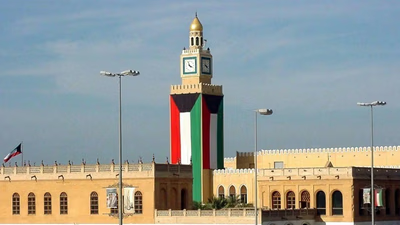
Kuwait"s economy is heavily influenced by Islam, which shapes its cultural and legal frameworks. The Kuwaiti Dinar (KWD) is the official currency, known for its high value linked to the oil sector. Approximately 70% of the population are Sunni Muslims, with a significant emphasis on charitable giving through zakat. The economy relies predominantly on oil exports, accounting for about 85% of government revenue. Despite this dependency, Kuwait is pursuing economic diversification to reduce reliance on oil and enhance sectors like finance and tourism. The country has implemented fiscal reforms in response to fluctuating oil prices, aiming to stabilize its economy. Agriculture plays a minimal role in GDP, making Kuwait a major food importer. The stability of Kuwait"s economy attracts global business actors, fostering a favorable environment for trade and investment.
Additionally, Islamic finance is prominent in Kuwait, offering Sharia-compliant financial products that align with religious principles. Religious tourism also contributes to the economy as visitors come to explore its historical Islamic sites.
-
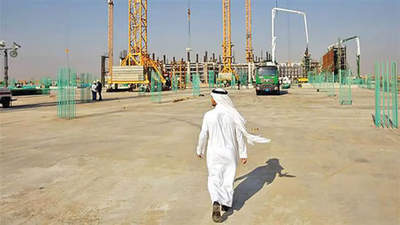
Kuwait"s economy is heavily reliant on crude oil exports, which constitute 90% of its GDP and 75% of government revenue. The aftermath of the Gulf War in 1990 severely impacted its economic structure, leading to significant foreign investment efforts to revitalize the economy. Key exports to Kuwait include mineral products like gypsum and cement, iron and steel, live animals, food products, vegetables, fish, fruits, and building materials. The country has a relatively high per capita income due to its small population and substantial GDP. Despite economic challenges post-war, Kuwait has maintained a low inflation rate and a diverse import market for food and construction materials. The government has sought advice from international financial institutions to implement economic reforms focusing on privatization and tax increases. Kuwait"s strategic location enhances its role as a trade hub in the region, with major trading partners including the US, Japan, South Korea, and several European nations.
-
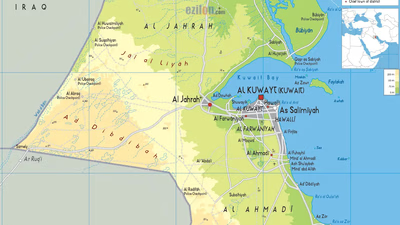
Kuwait"s ports play a crucial role in its trade landscape, with the Port of Shuwaikh being the largest and busiest, handling a variety of commercial cargo. The Port of Shuaiba follows as the second-largest, focusing on bulk cargo such as petroleum products and chemicals. Bubiyan Port, currently under development, aims to become a significant transshipment hub with advanced facilities. Al-Ahmadi Port is dedicated to oil exports, while other ports like Al-Zour and Doha serve specific functions in the oil and light goods sectors. The strategic location of these ports enhances Kuwait"s attractiveness for global traders. Import regulations require licenses from the Ministry of Commerce and Industry, ensuring that only registered importers can operate within the country. This regulatory framework supports a stable trade environment, fostering connections between local exporters and international markets.
-
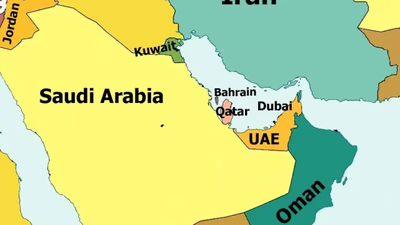
Kuwait, located in West Asia, shares borders with Saudi Arabia and Iraq, and has a coastline along the Persian Gulf. Despite its small geographical size of over 17,000 square kilometers, Kuwait has a rich history and complex identity. The country was founded by Sheikh Barak ibn Gharir al-Hamid in the early 18th century and has evolved into a significant player in regional trade. Approximately 60% of its population are Arabs, with a notable Asian demographic as well. The official language is Arabic, while English is widely spoken due to historical influences. Kuwait"s climate is predominantly hot and dry, necessitating substantial imports of food and water. The nation has made strides in improving its agricultural practices through greenhouses and other innovations. Politically, Kuwait operates as a sheikhdom with a parliamentary system that allows for greater openness compared to some neighboring countries.
Since gaining independence in 1961, it has maintained stability and fostered international relations despite historical territorial disputes with Iraq. Today, Kuwait stands as one of the safest countries in the region, making it an attractive hub for trade and business networking. "






